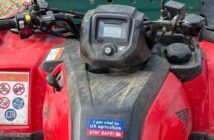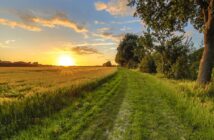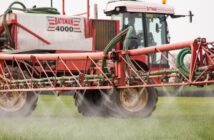Farms could become key players in the generation, storage and supply of renewable transport electricity and fuel in rural areas, as well as supplying decentralised power networks, according to a new study of the opportunities and challenges of ‘vehicle to grid’ (V2G) technologies on farms and in other rural business and community situations.
This practical approach to low emission transport technologies in rural areas is being outlined at the Energy and Rural Business Show taking place next February 6 and 7. Farmers and landowners wanting to find out how they could tap into the opportunities presented by electric vehicles and machinery are invited to attend the free event and learn more.
An industry-led ‘task and finish’ group could lead to trials of new electric and autonomous vehicles operating in farm and rural situations – and identify how local grid technologies, battery storage and V2G systems can come together to make this happen.
Leading the initiative is the NFU, alongside Warwickshire transport specialist Greenwatt, working in association with AHDB to investigate the practicalities of linking farm-generated renewable electricity and innovative transport technologies.
“We are exploring the opportunity for rural vehicle-to-grid (V2G) trials involving electric tractors and other off-road agricultural machinery, as well as highlighting the potential challenges of vehicles charging from often weak rural electricity networks. Farm machinery manufacturers, electric vehicle specialists and battery storage experts, as well as university and government research bodies, are all participating with the common purpose of adding value to farm-generated renewable electricity,” says Jonathan Scurlock from the NFU.
Mike Woollacott from Greenwatt Technology is a co-coordinator of the V2G Task and Finish group and is positive about the future. “Farms are perfectly placed to be pivotal in the generation, storage and supply of renewable electricity enabling much greater deployment of electric vehicles on our farms, horticultural and forestry businesses. Smarter farming will mean the adoption of battery powered and sometimes driverless vehicles on our farms.
“There is now a greater need for localised renewable energy and in light of the government’s target to ban diesel and petrol vehicles by 2040, the need for new sustainable refuelling infrastructure in rural areas is more pressing than ever. As the National Grid decentralises, we need to test and demonstrate the practicalities of integrating the generation, storage and use of renewable energy as a clean and locally accessible source of transport fuel for rural businesses and communities,” says Mike.
“The Energy and Rural Business Show is the perfect backdrop to engage farmers with this project, to raise the potential and to identify future demand. Bringing together the ‘Low Emission Vehicles Expo’ and ‘Energy Now Expo’ along with ‘Rural Business Expo’ will showcase some of the challenges and opportunities we face in farming,” adds Mike.
The Energy and Rural Business Show is free to attend and places can be booked today: http://www.energyandruralbusiness.co.uk/visit/register-to-visit.




